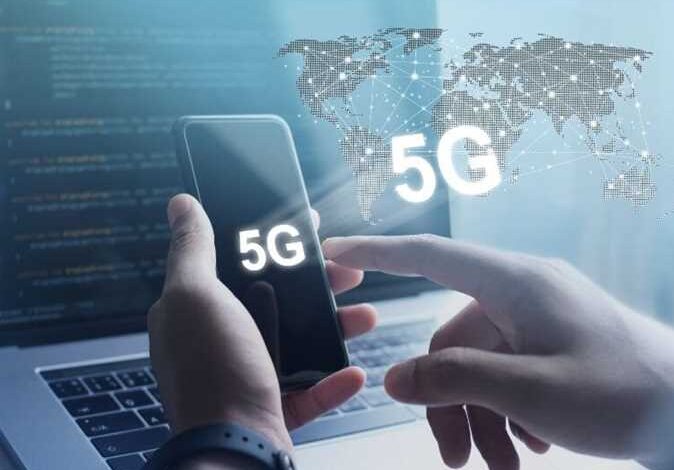
5G, the latest innovation in mobile communications, is poised to revolutionize industries, healthcare, education, transportation, and fundamentally alter the way we interact with technology.
Recently, there has been a growing debate about potential health risks associated with this new technology, with some even claiming that it could cause cancer.
Is 5G available in Egypt?
Egypt has embraced 5G technology. The National Telecommunications Regulatory Authority (NTRA) has awarded 5G mobile licenses to three major mobile operators: Etisalat, Orange, and Vodafone. Each company has acquired a license for $150 million, along with an additional $75 million to renew their previous generation licenses for 15 years without obtaining new frequency bands.
Furthermore, Egypt’s state-owned telecommunications company, WE, secured a 5G mobile license in January of the previous year for $150 million, valid for 15 years.
The service is expected to be launched by the four operators in the Egyptian market within six months according to the license.”
Does 5G Technology Cause Cancer?”
Tarek Al-Barady, a professor of surgical oncology at the National Cancer Institute, stated that there is no credible scientific evidence linking 5G network technology to cancer. He emphasized that public health concerns related to 5G are not based on proven scientific facts.
In a statement to Al Masry Al Youm, he noted that “all research conducted to date has found no direct link between modern communication technologies and adverse effects on human health, including cancer.”
Al-Barady added that ensuring health safety when using devices that emit radiation primarily depends on strict adherence to technical specifications and internationally recognized standards.
According to the professor, these specifications set safe limits for radiation levels that devices can emit to ensure they do not cause any harm to users. Additionally, the standard guarantees imposed by regulatory authorities provide mechanisms for periodic monitoring to ensure that devices remain within these safe limits throughout their use, enhancing the protection of individuals’ health and reducing potential risks.
The Truth About the Harms of Mobile Phone Radiation
According to the National Cancer Institute in the United States, mobile phones are a source of radiation in the radio frequency range of the electromagnetic spectrum. Second, third, and fourth-generation devices (2G, 3G, and 4G) emit radiation in the range of 0.7 to 2.7 gigahertz, while 5G frequencies reach up to 80 gigahertz.
All of these frequencies fall within the non-ionizing low-energy and frequency range, which does not affect DNA or cause damage to it.
In contrast, ionizing radiation such as X-rays and radon has high energy and high frequencies that can damage DNA, increasing the likelihood of genetic changes that may increase the risk of cancer.
The Cancer Council Australia explained that exposure to radio frequencies associated with 5G technology, whether through mobile phone use or otherwise, is unlikely to lead to cancer.
Despite some concerns about this rumor, the available scientific evidence does not strongly support these concerns. A 2018 study found no Australian study linking increased mobile phone use to higher rates of brain cancer. The results of this study confirmed previous research conducted in 2016. In general, current research indicates no significant increase in the risk of cancer associated with the usual use of mobile phones.
What are the advantages of 5G?
The 5G network is characterized by a number of features that make it more advanced compared to previous networks.
Differences between 4G and 5G
- 5G provides speeds that far exceed those provided by 4G networks.
- 5G improves the quality of connection.
- The network reduces latency, thus providing a quick response to applications and devices.
- The network can support a large number of connected devices, which contributes to enhancing the Internet of Things (IoT).
- 5G is changing the way we access applications and social networks, opening up new doors for digital interaction.
Benefits of 5G technology for businesses
5G technology provides businesses with great opportunities for development and innovation, such as the spread of self-driving cars, as it reduces latency and allows for the rapid exchange of information between vehicles and sensors. 5G also supports the creation of connected factories.
Devices such as cameras and sensors can collect data automatically in real-time, and the network allows for the effective use of VR and AR technologies, enhancing the user experience in various applications. It also allows for the creation of high-performance applications by processing data close to its points of creation, which reduces latency and increases response speed.




